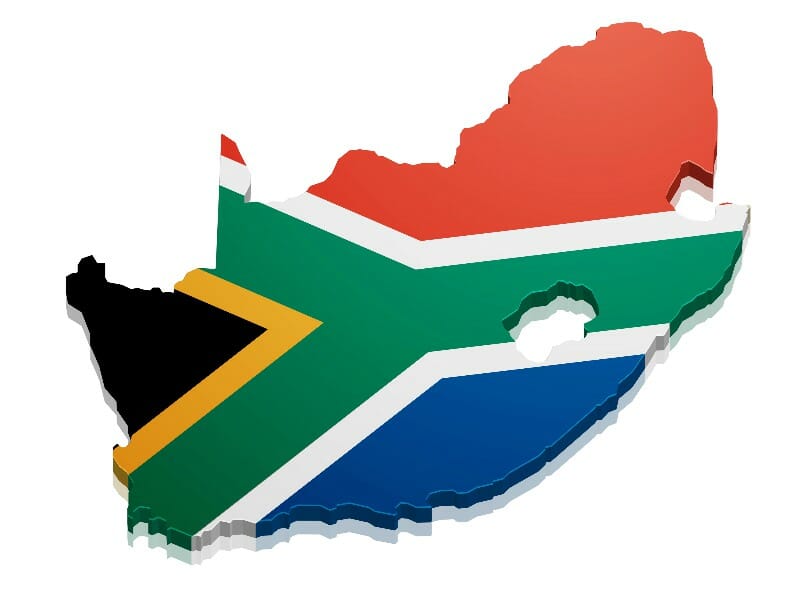South Africa is the most visited country in Sub-Saharan Africa. It has earned that designation for good reason. The country’s delicate and complex history—in addition to its incredible natural wonders—makes it an attractive destination for anyone who wishes to dive into this exciting, if not polarizing, nation.
As was the case with many countries throughout the developing world, the onset of the COVID-19 pandemic hit South Africa hard. Often ill-equipped and overwhelmed, first the health care system and shortly after the economy was devastated by the personal and economic toll that the disease had on the country.
Thankfully, South Africa has recently begun to reverse its fortunes. The increase in the availability and distribution of the vaccine has worked to lower the COVID-19 transmission numbers. In turn, the government has been able to work towards the reopening of the country’s international borders, paving the way for a much-needed injection of outside capital to a beleaguered economy that has been battered and bruised for months on end.
To help facilitate and prolong economic growth, the government recently announced its multi-year plans for a massive investment in South Africa’s infrastructure. The announcement was well-received locally where it is expected to provide jobs for as many as half a million workers.
The plan follows other recent moves by government officials to invest in the country’s future, including the updating of its visa distribution system for tourists. Before the launch of the South African eVisa, the process for foreigners to receive permission to enter South Africa involved soliciting difficult to get embassy or consulate appointments and long wait times.
Now, passport holders from over 80 countries around the world can apply for their country-specific South African eVisa. The particularities of each eVisa differ from country to country, meaning it is essential that anyone traveling to South Africa applies for the correct one.
For example, if a citizen of Ethiopia wants to visit the rocky cliffs of Cape Town or see a Safari in Kruger National Park, must apply for the South African eVisa for Ethiopian citizens.
Read on to find out more about the new infrastructure projects and what eager tourists might find in the coming years.
What Areas Will South Africa’s New Infrastructure Projects Address?
Due in large part to the strain of the coronavirus that originated in South Africa, many nations put heavy travel restrictions on their citizens. While this severely limited the ability for South Africans to move around the world, it did provide the government with time to take much-needed stock of its country and identify several areas that it deemed to require updating.
Armed with a 595 billion rand ($40 billion) budget, the government is hoping to tackle some of the areas of infrastructure that officials feel are lagging. The following are several of the categories that were unveiled to the public as being atop the government’s agenda for this new venture:
- Updating its ability to lower the country’s greenhouse gas output by investing in the local green economy
- Investing in the building of more affordable student housing to better serve its large population of university students
- Updating its digital economic sector by investing in the tools necessary to foster growth in the industries most related to the digital world
- Growing its manufacturing and production sectors in a sustainable way to make the country more self-sufficient
The rationale behind spending such a large sum of money on these projects is that they will not only have long-term benefits to the country but that they will also benefit South Africans in the short term.
For years, South Africa has struggled with high rates of unemployment. In fact, the unemployment rate often remains well over a third of the country’s workforce. In a nation with a population of nearly 60 million people, that is a huge number of jobless people.
A beneficial aspect of the government’s plan is that there will be over 500,000 jobs created. This will help provide a stimulating boost to both the economy and the everyday lives of people in half a million households.
Will the Tourism Industry Be Impacted By These New Projects?
Before the pandemic, the tourism industry in South Africa contributed nearly nine percent of the country’s total gross domestic product (GDP).
A large portion of the money that comes from tourism is generated thanks to South Africa’s reputation as one of the best places on the continent to go on safari. Until the country allows as many tourists in as before, the safari and tourism industry as a whole will suffer some.
However, the main attractions are not going anywhere and people interested in visiting South Africa for a safari can rest assured that they will be able to safely do so soon.
In the meantime, South Africa will continue working towards its goals of updating its infrastructure across many industries, which will have lasting positive effects on everything ranging from tourism to tech and beyond.
